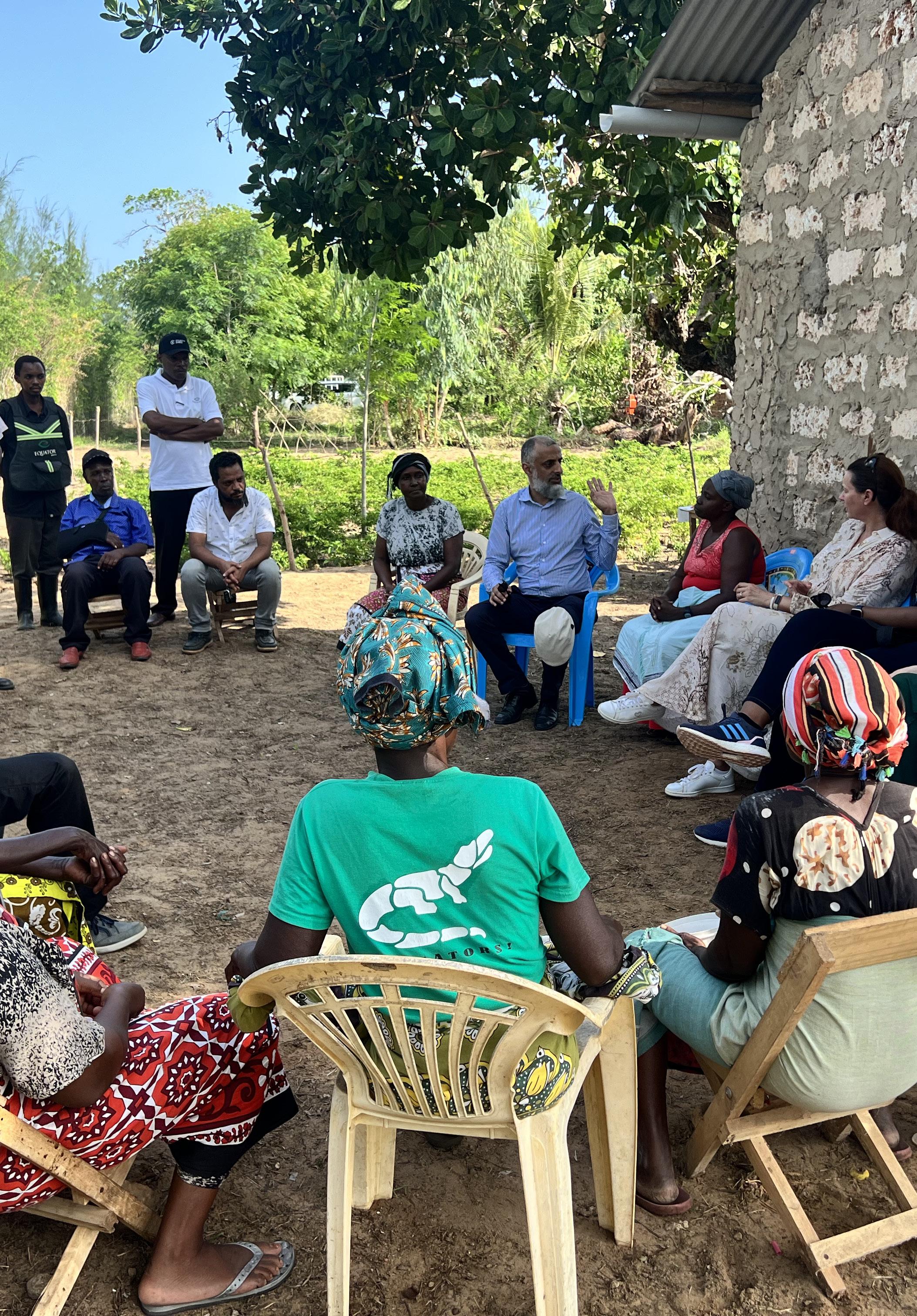



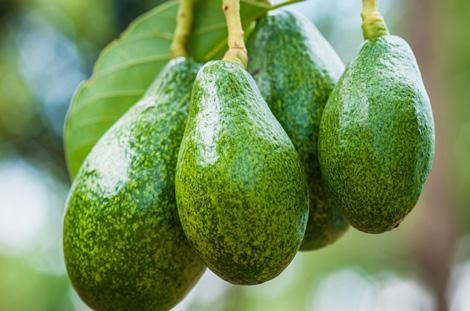

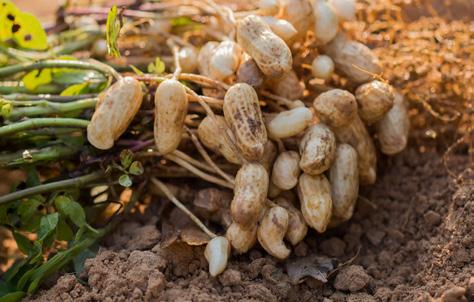
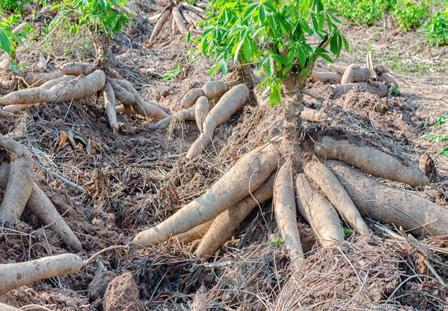














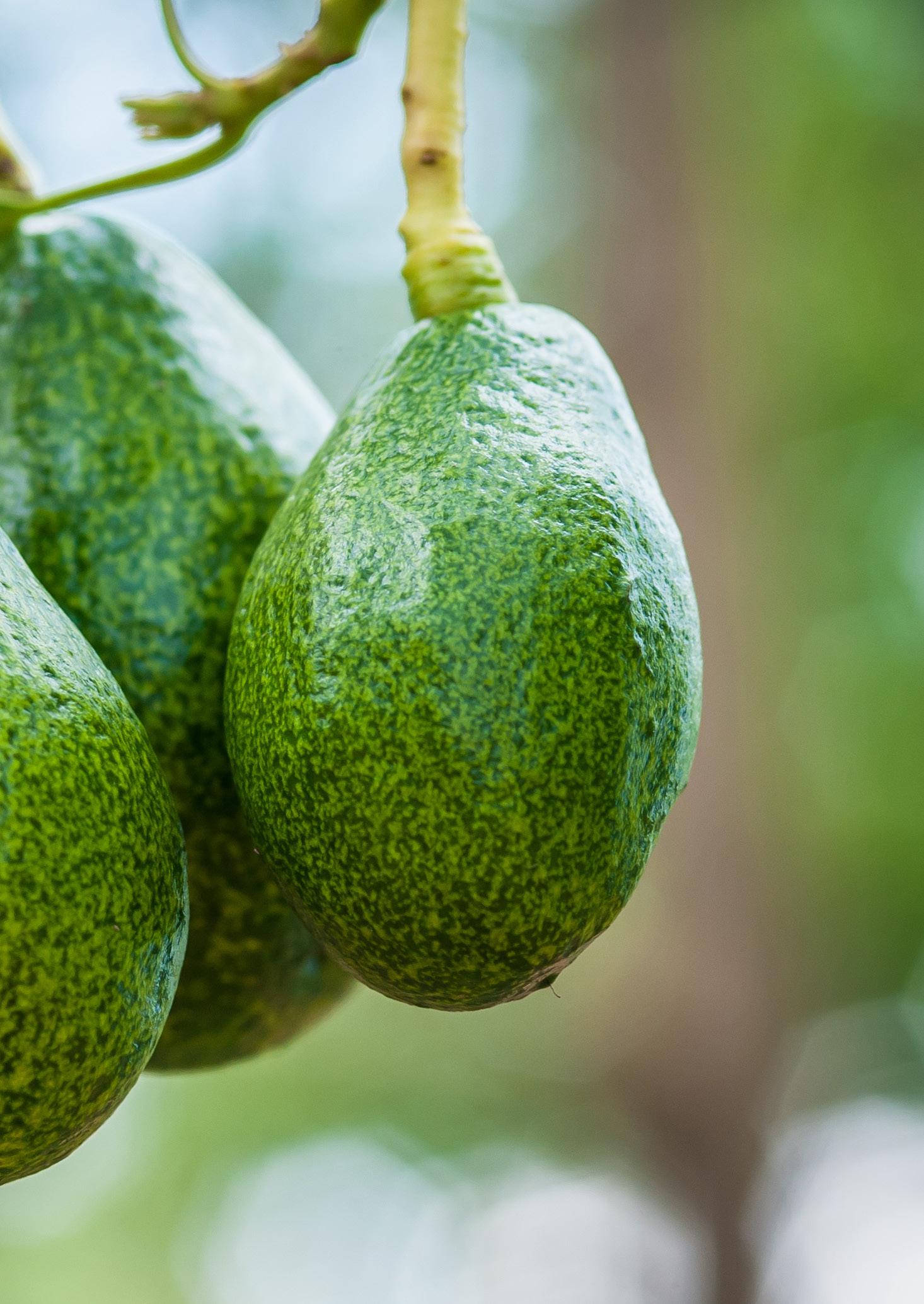

The British Deputy High Commissioner and Permanent Representative to the UNEP and UN Dr. Ed Barnett learns from The Fresh Products CEO Mr. Stephen Githiga how the SUED supported Avocado Packhouse ready avocados for export

The Sustainable Urban Economic Development (SUED) programme is a £43 million, seven-year initiative (2018–2025) funded by the UK Government to promote inclusive, climate-resilient growth in Kenya’s secondary towns. Funding is delivered through two channels: seed funding to de-risk investments in value chains and climate-resilient infrastructure, and technical assistance across three pillars—urban economic planning, investment attraction, and institutional capacity building.
SUED aims to:
• Advance inclusive urban economic growth
• Improve infrastructure and planning systems
• Stimulate employment opportunities
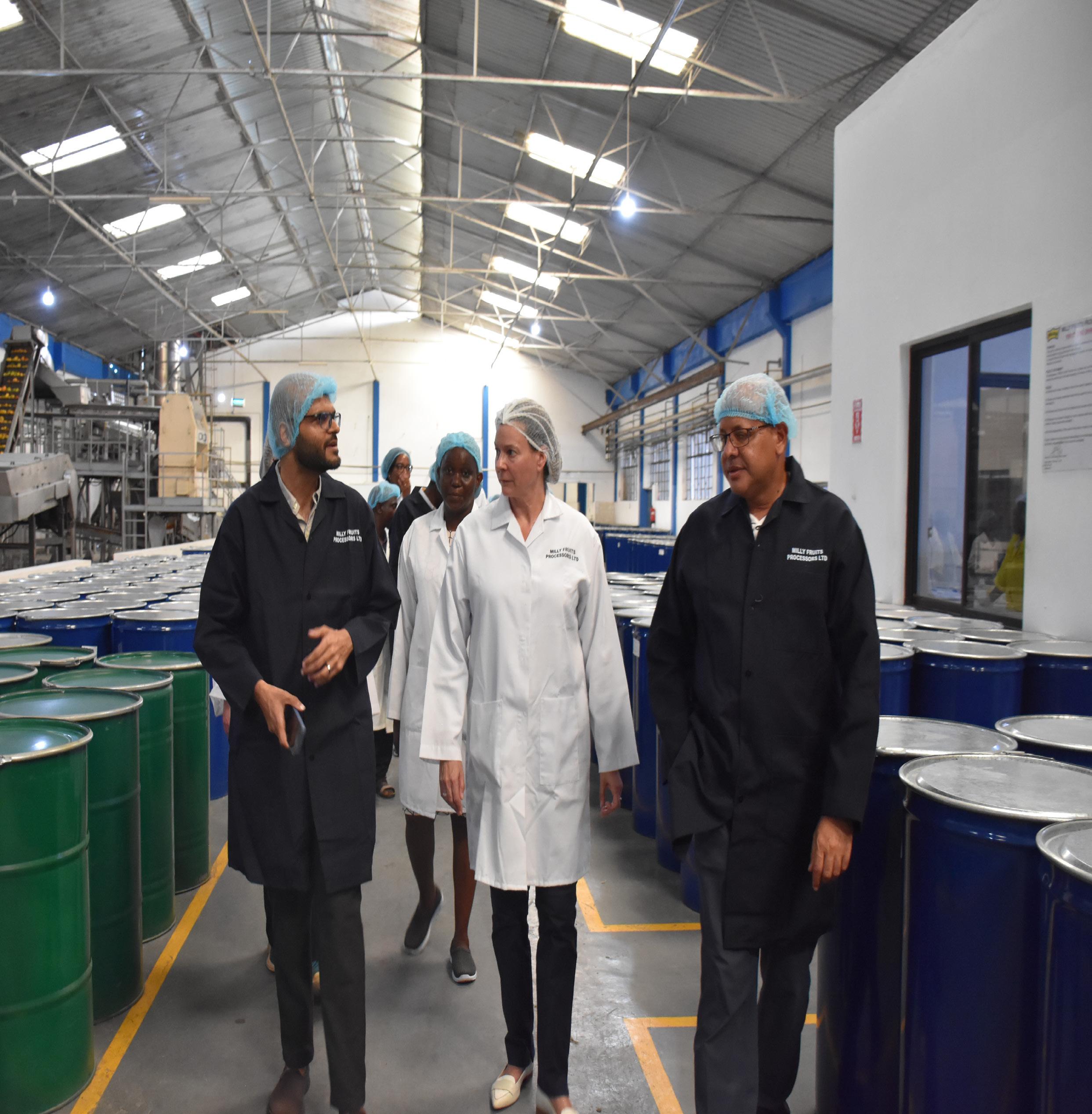
The Deputy British High Commissioner and Development Director Leigh Stubblefield tours Milly Fruits’ mango processing plant where SUED’s fruit drying plant will be modeled after
SUED has continued to work closely with the Government of Kilifi to ensure that investors feel welcome. Their varied approaches and support has ensured that we now have three sustainable value chain projects in the County. The programme’s support continues to demonstrate to us the deep commitment the UK Government has in working with and in intermediary cities to drive sustainable economic development ”
Kilifi Deputy Governor, Hon. Flora Chibule
SUED is catalyzing transformative change in Kenya’s secondary towns (municipalities/ intermediary cities) by unlocking their urban potential to become hubs of inclusive and climate-resilient economic growth
The UK Government is working in close partnership with Kenyan municipalities to champion economic growth through diversification and expanded market systems that support climateresilient, bankable value chain projects. To achieve this, the UK Government is financing the Sustainable Urban Economic Development (SUED) programme, which collaborates with 12 municipalities across Kenya. These include: Bungoma and Kisii (Lake Region Economic Bloc); Eldoret and Iten (North Rift Economic Bloc); Mandera and Isiolo (Frontier Counties Development Council); Kathwana and Kerugoya/Kutus (Mt. Kenya and Aberdares Region); Kitui and Wote (South Eastern Economic Bloc); and Malindi and Lamu (Jumuiya Ya Kaunti Za Pwani).
SUED is actively engaging with 10 of these municipalities to attract investment. This sevenyear, £43 million initiative supports Kenya’s intermediary cities to adopt a holistic strategy for attracting investment into climate-resilient infrastructure and value chain projects. This approach fosters business growth, enhances local economies, creates employment, and improves residents’ quality of life.
The programme has partnered with municipalities to implement a structured investment model that mobilizes capital, encourages businesses to relocate, and generates jobs.
By introducing a disruptive methodology that bridges public and private sector collaboration, SUED is enhancing municipal competitiveness. The programme recognizes municipalities as key drivers of economic development and advocates for substantial investment in participatory, integrated, and sustainable market system

The programme utilises a three-step approach in its implementation.
Developing an Urban Economic Plan: At the outset, the programme collaborated with county and municipal teams to develop tailored Urban Economic Plans (UEPs). These plans incorporate market-driven strategies that enable municipalities to pinpoint feasible value chain investments and climate-resilient infrastructure priorities. This integrated approach is designed to unlock each municipality’s economic potential and lay the foundation for sustainable, inclusive urban growth

2 3
Technical Assistance to Actualise the Plan: Once a municipality formally adopts its Urban Economic Plan (UEP), the programme offers further technical support to refine the plan, making it attractive to potential investors. To ensure effective implementation of UEP recommendations, SUED integrates a robust capacity-building component. This support focuses on strengthening governance frameworks and enhancing technical skills within municipal and county teams. The goal is to improve the management of urban services and ensure the sustainability of SUED’s interventions beyond the programme’s duration. By equipping local institutions with the necessary competencies, SUED helps embed long-term resilience and effectiveness in urban development efforts across Kenya’s intermediary cities.
Seed Fund: SUED has established a seed fund to equitably support projects identified in the UEPs and prioritised for further evaluation during the investment attraction phase. These projects undergo viability assessments to ensure economic feasibility. The seed fund is an incentive mechanism, boosting investor confidence and encouraging private sector participation in development initiatives
H.E. Lee Kinyanjui, Cabinet Secretary of Trade and Industry together with Thika Cloth Mills Managing Director Tejal Dodhia celebrate the laying down of the foundation stone at TCM’s new cotton processing plant location. Looking on is the Lamu Governor, H.E. Issa Timamy

Women small scale farmers share the impact SUED has had on their incomes with the Deputy British High Commissioner and Development Director Ms. Leigh Stubblefield
Using a demand-led, integrated model that engages both public and private stakeholders, SUED’s core objectives are to
Inclusive economic growth and poverty reduction in supported municipalities and the respective counties that they are embedded in
Increased investment in selected municipalities including investments in climate-resilient infrastructure and value chain projects.
SUED is managed by Tetra Tech International Development. Tetra Tech provides programme management, technical oversight, and coordinates implementation of activities by the subcontractors that comprise of:
WS Atkins Global – The Atkins Team developed 12 UEPs. The plans identify the economic sectors that the municipalities need to harness to achieve the potential of their urban areas as engines of inclusive and climate resilient growth and positive social change.
Open Capital Advisors, KPMG and KCIC: These investment attraction firms utilise the developed UEPs to promote the project identified to attract investors. Their work is geared towards attracting public-private investment in infrastructure and value chain projects in supported municipalities.

Kathwana
UEP developed and adopted
Eldoret
UEP developed and adopted, 2 deals closed in the investment attraction phase
Iten
UEP developed, adopted and publicly launched, 2 deals closed in the investment attraction phase
Bungoma
UEP developed and adopted
Kisii
UEP developed, adopted and publicly launched, 2 deals closed in the investment attraction phase
Wote
UEP developed and adopted.
Isiolo
UEP developed and publicly launched, 1 deal signed in the investment attraction phase
UEP developed and adopted, 3 deals closed in the investment attraction phase
Mandera
UEP developed and adopted
Kitui
UEP developed and adopted
Lamu
UEP developed and adopted,4 deals closed in the investment attraction phase
Malindi
UEP developed, adopted and publicly launched, 3 deals closed in the Investment attraction phase
Capacity Building: All municipalities have continued to receive capacity building support through the investment attraction process. This has entailed a series of trainings on financing sustainable urban development projects as well as developing investment related policy documents and by-laws.

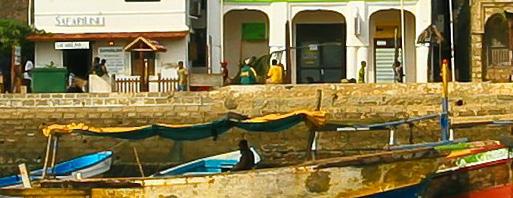
Board Members in Lamu County provide stakeholder input into the development of the UEP to ensure that the wider considerations are incorporated
All municipalities now apply a coordinated, cross-disciplinary approach to planning for economic development.
”
Using a market-oriented approach, SUED partnered closely with supported municipalities to develop Urban Economic Plans (UEPs). These comprehensive plans outline development priorities by identifying and ranking climate-resilient infrastructure and value chain opportunities that can stimulate economic growth, unlock urban potential, and promote sustainable urbanisation in targeted towns and municipalities.
The UEP serves as a strategic advisory tool that builds on existing initiatives and priorities outlined in county governments’ integrated development plans, spatial frameworks, and urban strategies. It ensures that municipalities have a focused economic roadmap that promotes inclusive growth.
The purpose of the UEP is to:
• Offer an inclusive economic framework to guide future development and enhance prosperity in municipalities
• Highlight economic activities and climate-resilient infrastructure that deliver maximum impact and support long-term sustainable growth
• Unite stakeholders in shaping and executing the economic vision of local municipalities
• Identify and prepare value chain projects for further feasibility and bankability assessments, positioning them for private sector investment


The UEPs are designed to promote climateresilient infrastructure that supports urban development while minimizing environmental degradation. This includes integrating green growth strategies that anticipate future population increases and economic expansion. For example, Isiolo’s UEP includes flood management infrastructure to protect sensitive ecosystems and urban settlements. These interventions ensure that urban expansion does not compromise ecological integrity and that municipalities are better prepared for climaterelated shocks.
Each UEP was developed through a consultative process involving diverse stakeholders, including marginalized groups, youth, and women. This ensures that the plans reflect the needs and aspirations of all community members. SUED conducted focus group discussions and stakeholder forums in municipalities like Malindi and Kitui, helping to identify barriers to inclusion and co-create solutions that promote equitable access to
economic opportunities The inclusive planning process strengthens local ownership and ensures that development benefits are widely shared.
UEPs prioritize projects that are economically and environmentally resilient. This means selecting initiatives that can withstand market fluctuations and climate variability. These plans also encourage the adoption of smart technologies, such as solar-powered systems and digital platforms for market access, which enhance the municipalities’ ability to respond to changing conditions
To preserve natural resources and promote sustainable growth, UEPs incorporated circular economy principles. This involves designing economic activities that minimize waste, optimize water and energy use, and strengthen rural-urban linkages.These initiatives not only improve resource efficiency but also create jobs and stimulate local economies.
The Managing Director of Thika Cloth Mills, Ms. Tejal Dodhia shares with the Deputy Britsh High Commissioner and Permanent Representative to UN and UNEP Dr. Ed Barnett, Cabinet Secretary for Trade and Industry Lee Kinyajui and Lamu Governor how SUED’s support has played a critical role in setting up a cotton ginning and processing plant in Lamu

The UK Government continues to demonstrate to us how they are a longterm partner for long-term economic growth in Kenya. They have brought into Lamu four projects that have the capability to transform lives and the economic landscape of Lamu. SUED has demonstrated the value of working together with the private sector to drive county based economic development”
Kenya’s intermediary cities are becoming critical engines of economic transformation, yet the private sector investment has often been limited due to infrastructure gaps, market inefficiencies, and perceived risks. The UK Government funded Sustainable Urban Economic Development (SUED) Programme has catalysed private investment into these geographies by combining prefeasibility studies, investor outreach, and seed funding. Two case studies demonstrate SUED’s catalytic role: Avocado Avenue’s Avocado Oil Processing Facility in KerugoyaKutus (Kirinyaga County) and Fresh Products Limited’s (TFP) Avocado Packhouse in Eldoret (Uasin Gishu County). Both projects highlight how SUED enabled agribusinesses to expand into new geographies, creating urban-rural value chains, generating jobs, and positioning municipalities as competitive agribusiness hubs.
SUED’s strategic interventions in Eldoret and Kerugoya-Kutus Municipalities have demonstrated how targeted support can unlock agribusiness potential in intermediary cities. These projects were not just about infrastructure, they were about vision, timing, and catalytic investment.
Fresh Products Limited (TFP) was drawn to Eldoret through SUED’s Urban Economic Plan (UEP), which identified avocado as a highpotential value chain in the North Rift region. Despite having no prior plans to expand there, SUED’s prefeasibility study and seed fund proposition convinced TFP to establish a pack house in Eldoret a region with rising avocado production but lacking processing infrastructure.
Avocado Avenue, operating in Ruiru, saw Kerugoya-Kutus as a strategic expansion point due to its location within the Central Kenya avocado belt. SUED’s prefeasibility study, climate resilience assessment, and seed fund support helped Avocado Avenue overcome entry barriers and commit to building a 60-tonne/day
oil processing facility.
SUED’s additionality was clear:
• It de-risked private investment through seed funding.
• It provided technical assistance and prefeasibility studies that validated the business case.
• It facilitated county-level engagement, helping businesses secure land, licenses, and farmer networks.
These interventions created a compelling value proposition for both companies to expand into new geographic areas, areas where they previously had no physical presence.
Both companies leveraged SUED’s support to establish operations that not only served their commercial interests but also embedded them deeply into local economies.
• TFP’s Eldoret pack house is designed to process over 6,000 tonnes of avocado annually, creating 4,114 full-time equivalent jobs and contracting 4,000 farmers. SUED’s support enabled TFP to access cold storage and processing machinery; critical infrastructure for first-mover advantage in a region with limited competition.
• Avocado Avenue’s oil processing plant in Kerugoya will create 1,276 jobs and engage over 1,000 farmers. SUED’s seed fund is helping finance essential components like wastewater treatment systems, weighbridges, and handling crates giving the company a competitive edge in quality, sustainability, and scale.
SUED also facilitated:
• Farmer outreach and training programs through partnership with the local government.
• Linkages with cooperatives with support from the county and municipal leadership
• Climate-smart practices, including waste

recycling and agroforestry.
These elements is helping both companies build resilient supply chains and position themselves as leaders in their respective regions.
Distinctive Approach to Expansion: Partnerships and Local Economic Impact
The expansion strategies of both companies were rooted in partnership and ecosystem development.
• TFP partnered with farmer groups and worked closely with the County Government of Uasin Gishu to access farmers and promote avocado as a cash crop. Their presence is expected to attract other agribusinesses to Eldoret, creating agglomeration effects and stimulating the local economy.
• Avocado Avenue is engaging with cooperatives, agronomists, and sustainability partners like Flybot (for waste management) and Winfield Africa (for seedling grafting). Their facility in Kerugoya will be strategically located near the A2 highway, enhancing logistics and accessibility.
From a business perspective, the most effortintensive aspect of expansion was:
• Farmer mobilisation and contract formalisation; requiring trust-building, training, and consistent engagement.
• Infrastructure development ;from land acquisition to machinery installation.
SUED’s role in anticipating and supporting these challenges was pivotal. By offering phased seed fund disbursements tied to milestones, SUED ensured accountability while enabling progress.
The stories of Fresh Products Limited and Avocado Avenue illustrate how SUED’s model combining technical support, catalytic funding, and strategic partnerships can transform intermediary cities into agribusiness hubs. These expansions are not just commercial wins; they are blueprints for inclusive, climate-resilient urban economic development.
In Kenya’s fast-growing towns, small businesses are quietly making big moves—shipping chillies to Europe and the Gulf, and avocados across East Africa. Behind this surge is the Sustainable Urban Economic Development (SUED) programme, a UK-funded initiative that’s helping local enterprises become globally competitive. SUED works with municipalities to unlock economic potential through urban planning, climate-smart infrastructure, and targeted business support. One of its most transformative impacts is helping small and medium-sized enterprises (SMEs) break into export markets.
Equator Kenya Ltd (EKL), based in Malindi, is a chilli processor scaling up to meet international demand. With support from SUED and Kilifi County, EKL expanded its facility to double production capacity from 70 to 150 metric tonnes annually. The upgrade includes solar-powered drying systems and digital farmer engagement tools.
SUED provided £250,000 in seed funding, unlocking a total investment of £1.25 million. This enabled EKL to grow its farmer network from 1,700 to over 8,000, ensuring consistent supply of export-grade chillies. EKL now exports to buyers in Europe, including the Netherlands, positioning Kilifi as a regional spice hub.
In Kisii, Avofresh Processors Ltd is turning surplus avocados into high-value oil for export. With SUED’s support, the company set up a 70-tonne-per-day extraction facility, sourcing fruit from thousands of smallholder farmers. The UK Government contributed £469,000 in seed funding, helping Avofresh secure land, equipment, and transport logistics.
The facility reduces post-harvest losses and is expected to create over 3,000 jobs across Kisii County. By using fruit that doesn’t meet fresh export standards, Avofresh adds value
while expanding Kenya’s footprint in the global avocado oil market.
The Fresh Products Ltd (TFP) in Eldoret has set up the region’s first avocado packhouse, designed to sort, wash, and package Hass and Fuerte varieties for export. With £500,000 in SUED seed funding and a total investment of £1.7 million, the facility is expected to process up to 6,480 metric tonnes annually within four years.
TFP will contract over 7,000 farmers and create more than 7,000 jobs. By offering fair prices and stable demand, the company is improving livelihoods and positioning Eldoret as a competitive player in the avocado export market.
Milly Fruits Processing Ltd in Malindi is preparing to export dried mangoes, pineapples, and coconuts. With £478,000 in SUED seed funding and a total investment of £1.95 million, the facility will use solar dryers and hydro-powered grid energy to reduce emissions and post-harvest losses.
The plant will work with over 4,000 smallholder farmers and produce 760 metric tonnes of dried fruit annually. With buyers already engaged in Europe and the Middle East, Milly Fruits is poised to become a major exporter from Kilifi County.
Equatorial Nut Processors (ENP) is setting up Lamu County’s first cashew nut processing plant. Supported by SUED and a £488,000 seed fund, the facility will produce raw and roasted kernels, with plans to harvest Cashew Nut Shell Liquid for industrial use.
In five years, ENP expects to process 3,500 metric tonnes annually and support over 7,000 farmers. The project is designed with circular


economy principles and climate-smart practices, positioning Lamu as a new frontier for agroexport investment.
SUED’s model shows that with the right support, planning, infrastructure, and investment, local businesses can compete globally. These export wins aren’t just about revenue; they’re about
resilience, job creation, and transforming Kenya’s intermediary cities into engines of inclusive growth.
These successes demonstrate the potential for replication across Kenya’s intermediary cities. With continued support from the UK Government and strategic partnerships, SUED is laying the foundation for a resilient, export-driven economy.
Contextualisation: SUED’s Strategic Approach to Municipal Engagement
The Sustainable Urban Economic Development (SUED) programme, funded by the UK government, has been a catalyst for inclusive economic growth in Kenya’s secondary towns. SUED’s approach is rooted in the belief that local governments are not just administrative entities but strategic enablers of private sector investment. By strengthening municipal capacity, aligning urban planning with climate resilience, and unlocking anchor investments, SUED has created a replicable model for sustainable urban development.
Key components of SUED’s strategy include:
• Urban Economic Plans (UEPs): These plans identify priority value chains and infrastructure projects tailored to each municipality’s economic potential.
• Seed Fund Mechanism: SUED provides concessional finance to de-risk early-stage investments and attract private capital.
• Municipal Collaboration: SUED works directly with county governments to streamline regulatory processes, co-finance infrastructure, and foster investor confidence.
This approach has mobilized millions in public and private investment, transforming urban economies and livelihoods across Kenya.
Case Studies: Municipalities Driving Investment Through Partnership
Kisii Municipality: Integrated Waste Project
SUED partnered with Green Leaf Services Ltd to establish a climate-resilient Integrated Waste Management Facility in Kisii. The facility includes a Material Recovery Facility (MRF) and a Black Soldier Fly (BSF) unit for organic waste conversion.
County Government Contributions:
• Co-financing the project alongside SUED, demonstrating fiscal commitment.
• Providing land for the facility, reducing capital expenditure and accelerating implementation.
• Facilitated regulatory approvals, including environmental licensing and zoning.
• Offered technical support through county engineers and planners.
This project exemplifies circular economy principles, turning waste into value while creating green jobs and improving urban sanitation.
Lamu Municipality: Cashew and Fish Processing Projects
Lamu County has demonstrated proactive investment facilitation through its support for two anchor projects:
Equatorial Nut Processors (ENP): Cashew Nut Processing Plant Project
• Allocated land for the cashew processing plant in Hindi.
• Provided agricultural extension services, including seedling distribution and farmer training.
• Committed to infrastructure upgrades to support logistics and operations.
Diamond Seafood Kenya Ltd (DSF): Sustainable Fish Harvesting and Processing
• Provided shoreline land for the fish processing facility.
• Supported cold chain development and marine infrastructure.
• Partnered on training and equipment provision for artisanal fishers.
These projects are revitalizing Lamu’s blue and green economies, creating jobs and enhancing value addition in agriculture and fisheries.
Kerugoya Municipality: Hydrobox Small Hydropower Project
Hydrobox Kenya is deploying a 703KW runof-river hydropower plant along River Thiba in Kirinyaga County. The modular, containerised

design enables rapid deployment and remote monitoring.
County Government Contributions:
• Fast-tracked permits for water abstraction and energy licensing.
• Facilitated engagement with national agencies such as EPRA and the Ministry of Energy.
This clean energy project will power agroprocessors, schools, and households, aligning with Kenya’s green growth agenda.
Eldoret Municipality: Moisoy Maize Milling Project (Futuristic Framing)
The Moisoy Maize Milling Plant is envisioned as a transformative agro-industrial hub in Uasin Gishu County. With a budget of Ksh 477 million, the facility will process over 10,000 MT of maize annually.
Planned County Government Support:
• Will provide additional funding to bridge capital gaps and catalyze private investment.
• Will facilitate land acquisition and upgrade access roads and utilities.
• Will integrate the project into the county’s food systems strategy.
Once operational, Moisoy will enhance food security, reduce post-harvest losses, and create 200 direct jobs, benefiting over 20,000 farmers.
SUED is supporting Milly Fruits Processing Ltd to establish a climate-friendly fruit drying facility in Malindi, Kilifi County.
County Government Contributions:
• Streamlined land acquisition, ensuring clear titles and zoning compliance.
• Expedited environmental impact assessments and building permits.
• Committed to infrastructure upgrades, including road access and utility connections.
The facility will process mangoes, pineapples, and coconuts for export, supporting 4,000 farmers and creating 4,000 jobs while reducing emissions and post-harvest losses.
SUED’s work across these municipalities demonstrates a replicable model for local government-private sector collaboration. Key success factors include:
• De-risking investments through land provision, co-financing, and regulatory support.
• Building investor confidence via transparent processes and technical assistance.
• Aligning projects with climate resilience and inclusive growth to ensure long-term sustainability.
As Kenya continues to urbanise, empowering local governments to act as investment enablers will be critical to unlocking sustainable development and economic transformation.



In the turquoise waters off Lamu’s coast, a quiet transformation is beginning, not with fanfare, but with two mid-sized fishing vessels and a bold vision to rewrite the story of artisanal fishing in Kenya.
For decades, Lamu’s fishermen have relied on small canoes and seasonal tides, constrained to reef fishing for just a few months each year. But with the arrival of Diamond Seafood Kenya Ltd (DSF) and support from SUED’s seed fund, the tide is expected to turn literally and figuratively.
In early 2025, DSF acquired two mid-sized commercial fishing vessels designed for deepsea crab and squid harvesting. These boats, equipped for pot and jigging methods, are expected to venture beyond the reefs, unlocking fishing grounds previously inaccessible to local crews.
Local fishermen will be trained to operate these vessels sustainably, extending their fishing
season from four months to nearly ten months annually. This shift is anticipated to provide stable employment and a more secure livelihood.
Although the processing facility is still in planning, DSF has begun engaging with Beach Management Units (BMUs) and local fisherfolk offering training and in future will purchase catches directly and supply flake ice to preserve quality. These efforts are expected to result in higher prices, reduced spoilage, and renewed confidence among Lamu’s fishing communities.
The vessels will use low-impact techniques;pot fishing for crabs and jigging for squid, minimizing bycatch and protecting marine habitats. DSF’s commitment to climate resilience includes solarpowered infrastructure, rainwater harvesting, and mangrove restoration along the shoreline.
According to SUED’s climate screening, the project is considered a model for sustainable blue economy development, balancing commercial viability with ecological stewardship.
While still in its early stages, the project is expected to create 45 direct jobs and engage over 2,500 artisanal fishermen. With plans for a full processing facility, ice plant, and cold storage underway, DSF aims to scale operations and process over 500 metric tonnes annually in the next five years.
The anticipated ripple effects include increased incomes, year-round employment, and a growing ecosystem of skilled seamen, processors, and suppliers.
Lamu’s story offers a blueprint for coastal municipalities: begin with strategic investment in vessels and training, build trust with local fisherfolk, and scale infrastructure as capacity grows. It’s a phased approach—but one that centers community, climate, and commerce.
As DSF’s Managing Director Mohamed Khizer Ayub notes, the initiative represents an investment not just in equipment, but in people, place, and potential.

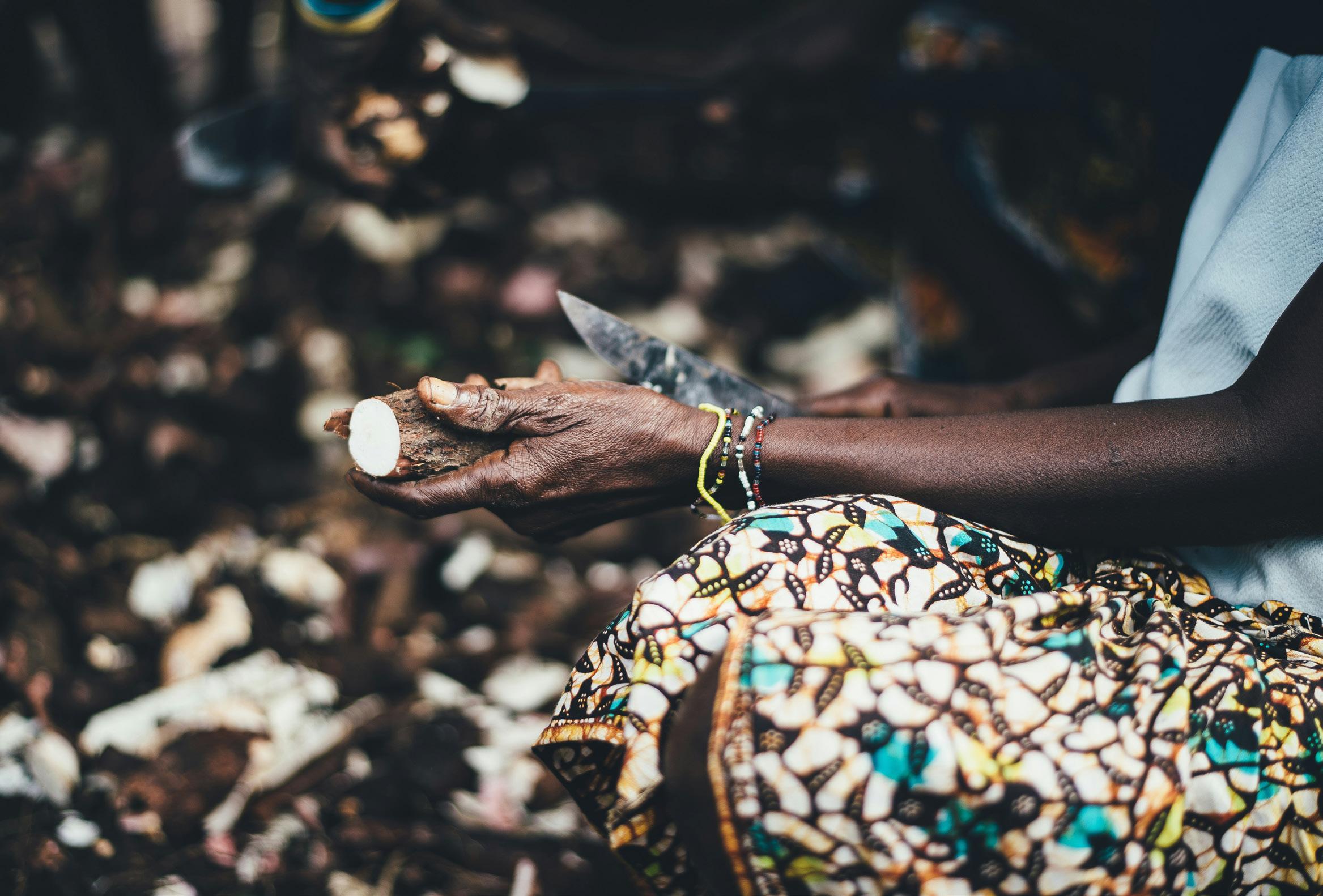
In Kilifi, cassava has long been a resilient crop thriving through droughts and heavy rains. Yet, despite its potential, farmers face a critical hurdle: once harvested, cassava must be processed within days, or it spoils under the sun. The absence of local milling or starch-extraction facilities has led to significant post-harvest losses, unpredictable incomes, and reliance on costly imported starch for staples like wheat flour.
The UK Government-funded Sustainable Urban Economic Development (SUED) Programme is changing that narrative. Through seed funding
to Bake Easy, the Kilifi Cassava Project is set to transform both the agricultural landscape and household economies in this coastal county.
Key interventions include:
• Solar-Drying Aggregation Hubs: Four hubs will be established to receive fresh cassava for washing, drying, and chipping dramatically reducing spoilage.
• Nucleus Farm Development: A 100acre farm will be leased and planted with climate-resilient, high-yield cassava varieties developed by IITA and the University of Nairobi. Over 3,000 smallholders will be trained in best-practice agronomy and postharvest care.
• Processing Infrastructure: A 300 kg/hour flour mill and starch-extraction line will be installed at Satao’s Kilifi plant, enabling local conversion of tubers into premium glutenfree flour and pure starch.
• Market Linkages: Guaranteed offtake agreements will ensure every kilo of cassava flows from field to market at a fair price.
“SUED’s partnership with Bake Easy demonstrates the UK Government’s commitment to work with farmers across Kenya to take advantage of their land and utilise it to increase household incomes to secure their prosperity ,” says Javin Hutchinson, Bake Easy’s CEO acknowledging the award and the road ahead.
Once operations begin and the first consignments of flour and starch reach supermarket shelves,
Kilifi’s farmers and families will begin to see tangible benefits:
Reduced Post-Harvest Losses: Losses will drop from 40% to below 10%, thanks to improved drying and rapid processing.
Job Creation: Up to 3,075 jobs will be created, 75 permanent processing roles, 100 support positions, and 3,000 farming contracts.
Income Generation: Annual purchases of 2,500 MT of cassava at GBP 0.20/kg will inject approximately GBP 1.5 million into rural households each season.
Import Substitution: Replacing up to 290,000 MT of imported starch annually will save foreign exchange and improve supply chain efficiency. Improved Livelihoods: Smallholder incomes are projected to rise by 25%, empowering families to invest in education, healthcare, and diversified farming.
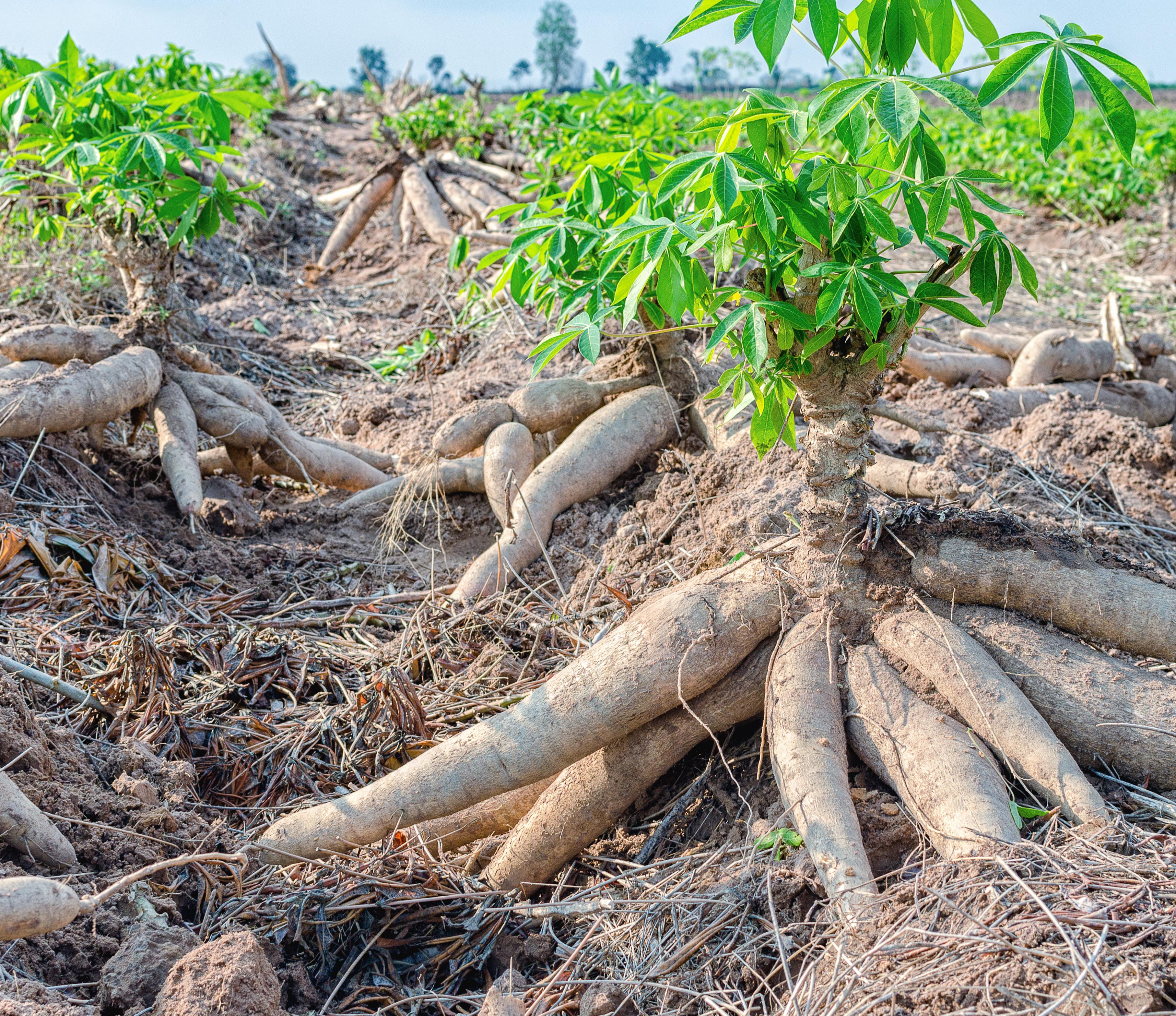

In the quiet town of Hindi, where coconut palms sway gently in the coastal breeze, a new chapter is unfolding, one that promises to transform Lamu’s agricultural landscape and empower thousands of smallholder farmers.
Kentaste Products Ltd has broken ground on a new facility in Lamu County. Backed by the UK Government funded Sustainable Urban Economic Development Programme’s seed fund and a bold vision for inclusive growth supported by the Lamu County Government, the project is generating excitement across farming communities.
Construction of the coconut processing plant
began in mid-2025, with a Lamu-based team leading site preparation and early infrastructure works. Kentaste’s approach goes beyond bricks and mortar it’s focusing on building trust, capacity, and long-term resilience through local talent development by working with Lamu-based extension officers who are championing coconut tree planting.
In partnership with the County Government, Kentaste has launched a farmer engagement campaign, distributing climate-resilient coconut seedlings and initiating training on Good Agricultural Practices (GAP). The goal is to regenerate Lamu’s aging coconut ecosystem and equip farmers for premium organic certification.
Over 1,000 farmers are planned to register in the coming year, with plans to reach 5,000 in three years.
The facility will initially focus on coconut milk,a high-margin, fast-growing product in global health-conscious markets. With simpler equipment and lower energy needs, milk offers a strategic entry point before scaling to oil, chips, and cream.
By the end of year one, Kentaste aims to process 700,000 coconuts, create 94 direct jobs, and source from 3,500 farmers. The anticipated ripple effects include new aggregation centers, transport jobs, and a revitalized local economy.
Kentaste’s model is rooted in sustainability. The facility will operate on solar power, recycle coconut shells into biochar, and implement zero-waste production. A dedicated nursery will produce drought-resistant varieties, while the nucleus estate will serve as a demo farm for regenerative practices.
According to SUED’s climate screening, the project is a model for agro-industrial resilience, balancing commercial viability with environmental stewardship.
The Governor of Lamu County has expressed appreciation for SUED’s support in catalyzing transformative agricultural investments. “ We have been extremely thankful to the UK Government for their continual support in Lamu, we know that SUED backed projects are geared towards positively impacting our local communities” he said.
Lamu’s coconut story offers a replicable framework: start with strategic crop selection, build local capacity, and phase infrastructure alongside farmer mobilization. It’s a patient, inclusive approach one that centers community, climate, and commerce.

focus group discussion
